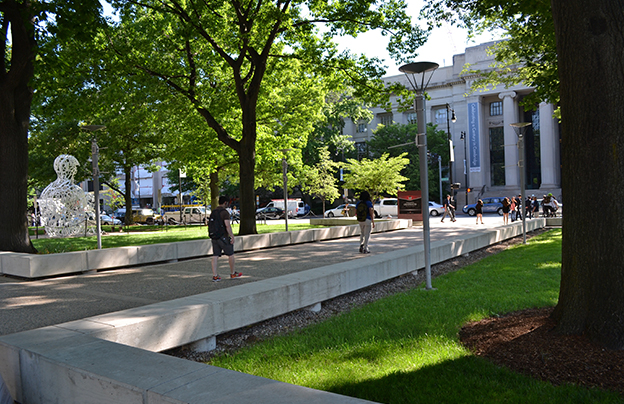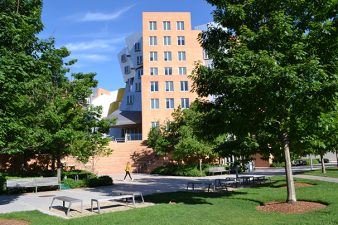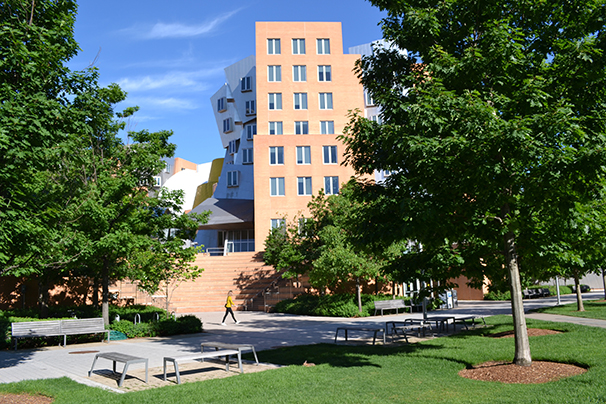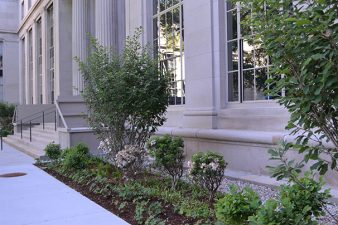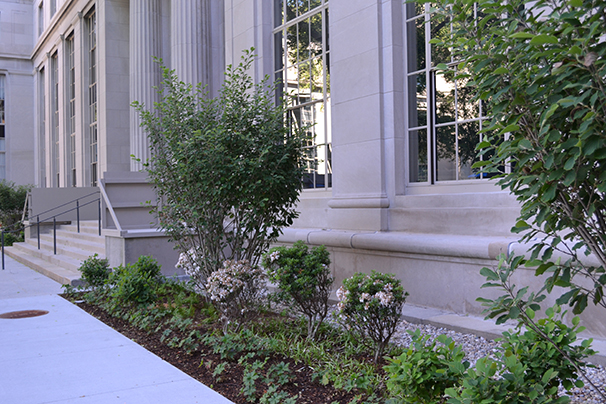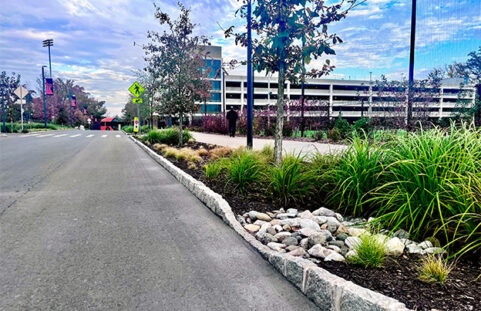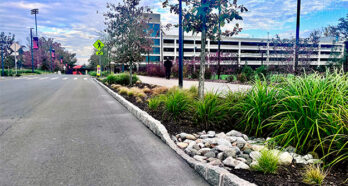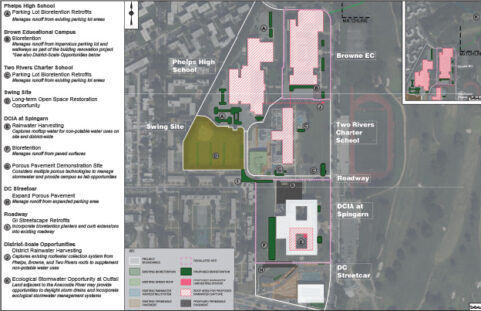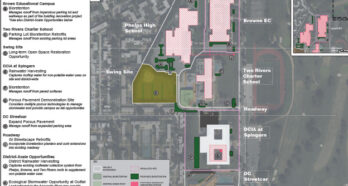Nitsch led a collaborative team in the development of the Massachusetts Institute of Technology’s (MIT’s) Sustainable Stormwater and Landscape Ecology Plan. The Sustainable Campus Stormwater and Landscape Ecology Plan provides MIT with a framework for considering the campus landscape and stormwater systems at a campus-scale, and a mechanism for guiding individual projects to align with goals while implementing strategies that support the larger district and campus priorities. Driven in part by the anticipation of strengthening stormwater regulations, the Plan supports ongoing planning initiatives on campus and guides the growth of the physical campus in a forward-thinking manner. Given the growing focus on and importance of climate change resiliency issues, the Plan was developed through the lens of transforming the MIT campus into a more resilient campus that serves as an example for local and global change.
The Plan envisions a future campus where every surface and space is enhanced to address urban environmental issues such as stormwater runoff and urban heat island, and that is adaptable to provide campus resiliency to future climate change impacts such as extreme temperature and precipitation conditions, and flooding. All the while, the performative landscape helps enhance the quality of life on campus and in the City of Cambridge through a network of green infrastructure. The Plan ties into ongoing campus as lab opportunities for monitoring the performance of indicators such as increased tree canopy, improved water quality, and biodiversity of open space.
Nitsch led a collaborative team in the development of the Massachusetts Institute of Technology’s (MIT’s) Sustainable Stormwater and Landscape Ecology Plan. The Sustainable Campus Stormwater and Landscape Ecology Plan provides MIT with a framework for considering the campus landscape and stormwater systems at a campus-scale, and a mechanism for guiding individual projects to align with goals while implementing strategies that support the larger district and campus priorities. Driven in part by the anticipation of strengthening stormwater regulations, the Plan supports ongoing planning initiatives on campus and guides the growth of the physical campus in a forward-thinking manner. Given the growing focus on and importance of climate change resiliency issues, the Plan was developed through the lens of transforming the MIT campus into a more resilient campus that serves as an example for local and global change.
The Plan envisions a future campus where every surface and space is enhanced to address urban environmental issues such as stormwater runoff and urban heat island, and that is adaptable to provide campus resiliency to future climate change impacts such as extreme temperature and precipitation conditions, and flooding. All the while, the performative landscape helps enhance the quality of life on campus and in the City of Cambridge through a network of green infrastructure. The Plan ties into ongoing campus as lab opportunities for monitoring the performance of indicators such as increased tree canopy, improved water quality, and biodiversity of open space.
Key Collaborators
Owner: Massachusetts Institute of Technology
Landscape Architect: Michael Van Valkenburgh Associates
Geotechnical Engineer: Haley & Aldrich


